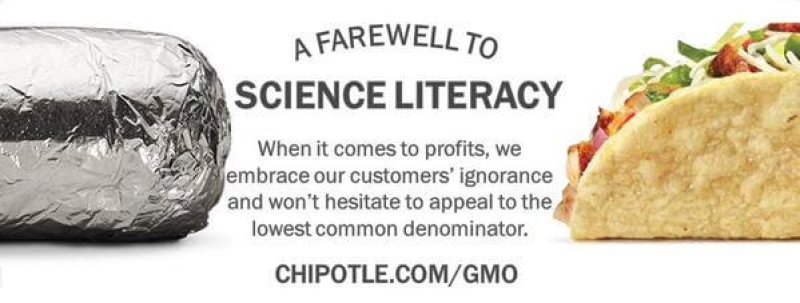The GLP aggregated and excerpted this blog/article to reflect the diversity of news, opinion and analysis.
The fast-food chain Chipotle claims to have stopped serving food with genetically modified ingredients. Except that this isn’t even close to true. Why would a fast-food chain engage in such a hoax? The answer is money. A team of European researchers reported this spring in Appetite, an international research journal.
“Buying or consuming food of ethical origin presents a readily available opportunity for people to attain moral satisfaction by supporting a cause they consider important,” write the authors. “The food then becomes not only a source of nutrition and gustatory enjoyment but also a physical artifact symbolizing the contribution.”
And so Chipotle hopes to cultivate the notion that eating its burritos and tacos represents an act of virtue — an act that consumers will choose to repeat again and again.
For this scheme to work, Chipotle must insinuate that GMOs are bad for human health and the environment — and that eating non-GMO food at Chipotle is a socially responsible alternative.
Chipotle’s marketing scheme is clear: It lies about science, preys on public ignorance, and along the way tries to inject a phony sense of moral superiority into the minds of its customers.
The worst part about this swindle is that GMOs are positively beneficial. These crops allow us to grow more food on less land, in an economically and environmentally sustainable way. They help us fight weeds, pests, and drought — and in the future, they’ll help us combat everything from allergies to malnutrition.
Supporting GMOs is in fact the socially responsible position.
Read full, original post: I’m over Chipotle: Supporting GMOs IS the socially responsible position































